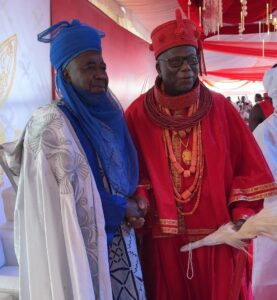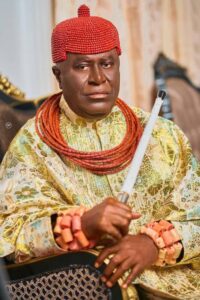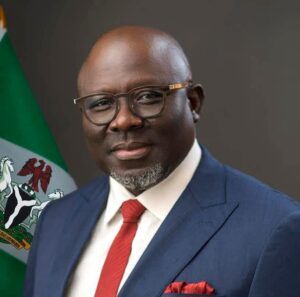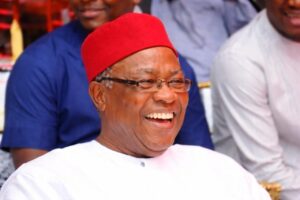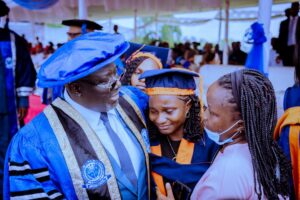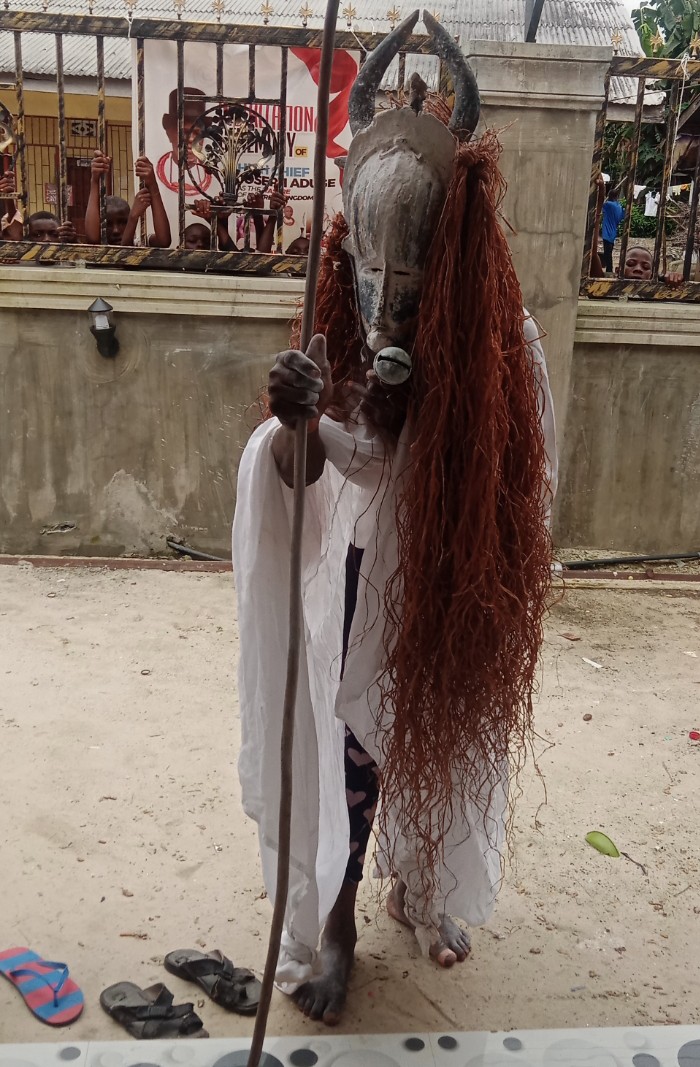
Imenerode visiting her children on festival day in Evwreni
By Jon Egie
Wednesday, September 13, the people of Evwreni kingdom in Ughelli North LGA rolled out the drums to celebrate the annual New Yam Festival called, ‘ Owhoru-EdjorUkpe’.
[the_ad id=”16914″]
To begin the festival, the traditional ruler of Evwreni kingdom drew the curtain of activities open by tasting the new yam and then proceeding to eating it with the Emuerubu royal family before the community as a whole ate and celebrated the new yam.
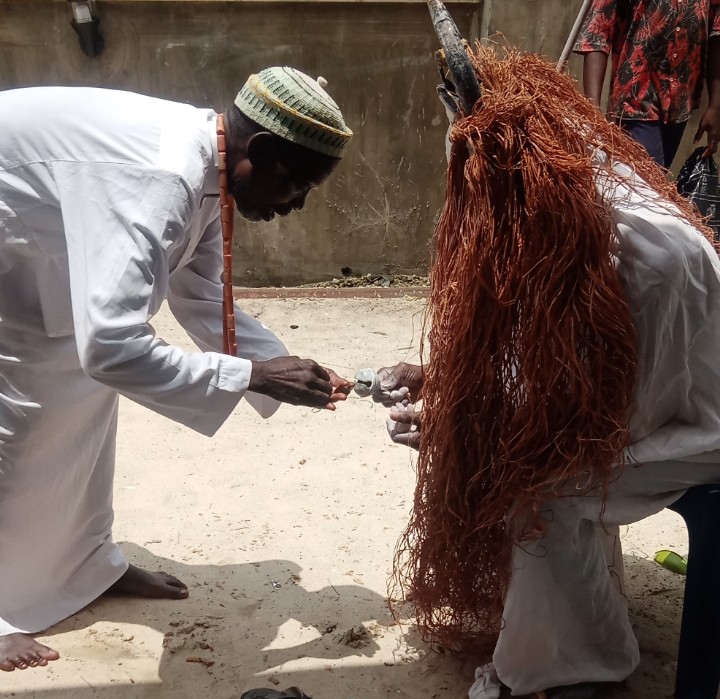
Prince Fuchen Asanemo Idhedhe, an enthusiast of the ‘Owhoru-EdjorUkpe’ Festival by the permission of the Iyasere of Evwreni kingdom, High Chief Joseph Aduge, narrated the proceedings, steps and stages involved in the celebration of the new yam festival, warning that the commonality of the concept does not in any way depict cultural affinity and migrational link of Evwreni kingdom to any Igbo speaking community and settlement, pointing out that Evwreni people have nothing to do with Igbo people in terms of cultural homogeny.
Shortly after the last two market days before the date fixed for the commencement of the festival, nobody went to the bush for farming or any other business.
On the eve of the festival day, all newly married women whose bride price had been paid within the new planting season culminating to the harvest of the new yam were escorted to their husbands’ compounds and that was what happened on Tuesday, September 12, leaving the hangover of the partying that followed in every such compound linger onto the festival day as canopies and chairs used for the parties laid unpacked and became ready resources for use on the main festival day.
[the_ad id=”16918″]
During the celebration, masquerades representing various deities of the community appeared in the arena to dance and entertain the audience. They came in order of relevance: Onidjor appearing first and followed by Amakataho, then Ugo took turn, Tigbongbon was next trailed by Checheruvo and with Usedjor Usedjor rearing the rank.
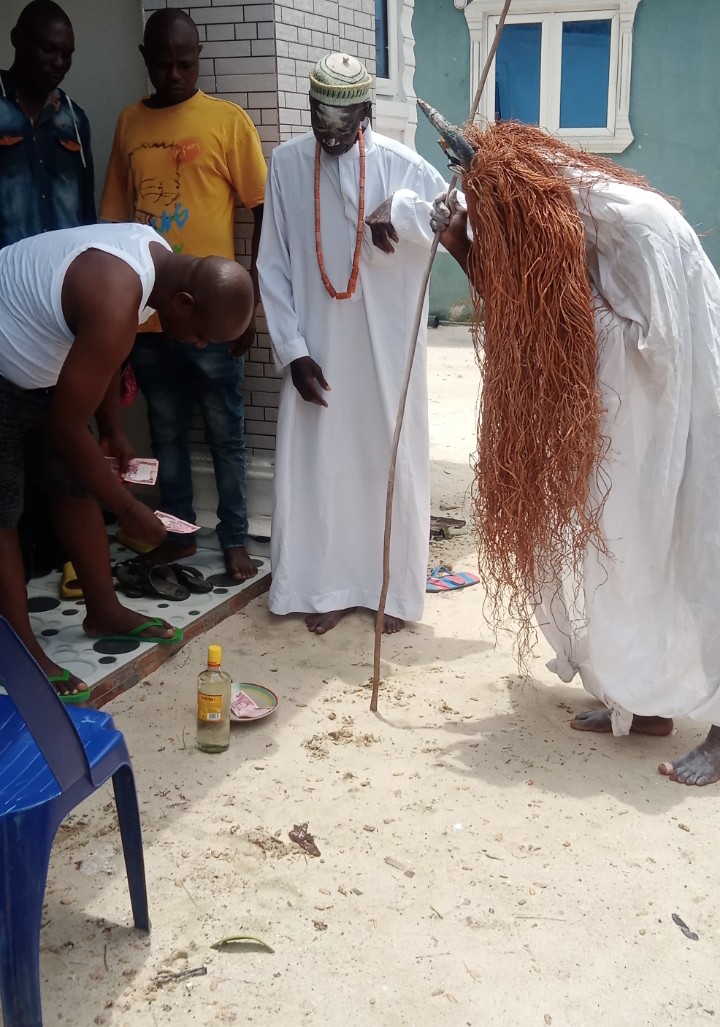
At the arena the Chief priest, Orovwon acted as the father of the day, seating at the centre of attraction and flanked by the king and Iyasere on his left hand side, savouring and enjoying the day as the activities rolled on. The natives and invited guests lined the arena and as good spectators, danced along and cheered up the masquerades.
Starting the next day, Thursday, September 14, natives observed a compulsory sit at home for two market days order imposed by the tradition and customs of the Evwreni people.
On the second market day, the masquerades assisted by the natives would escort Owhoru EdjorUkpe to Oku from where the deity came. This will be followed by another round of celebration till nightfall.
[the_ad id=”16918″]
Owhoru EdjorUkpe festival was introduced by late Emeya Ewhuru , a native of Evwreni. He had seven wives and tossed by the viscititudes of life, he decided to go on a long journey in search of a deity that would grant prosperity and protection to his family. Before embarking on the journey, he roasted a piece of yam and planted it. He told his wives that as long as he remained on the journey, if the roasted piece of yam he planted germinated and grew up, that would be a sign that he was still alive, but if not, that meant he was dead.
After so many years the planted roasted piece of yam did not germinate and six of his wives and their children took it that he was dead. They left the family compound and the women were remarried. But the last of his wives who was the most junior among the seven wives remained and stayed put. She had no child. She believed and hoped that one day her husband Ewhuru would return home.
[the_ad id=”16917″]
So many other years passed after the other wives and their children had left Ewhuru family compound. The building structures that housed the six wives and their children and even the house of Ewhuru had collapsed and one day, she noticed that the yam was germinating and Ovata, that was her name, remembered what her husband had told them.
Not long after, during a certain night rainstorm, Ewhuru returned back home. He searched for his compound only to meet relics of the collapsed building with nobody around. He groped on and sighted the glow of light from a bush lamp at the side of the house of Ovata. He called on her and an excited Ovata ran to his warm embrace and she welcomed him home.
[the_ad id=”16917″]
After he settled down, he and Ovata began and enjoyed serving and carrying out ritual activities marking the celebration and worship of the deity he brought home. He lived for so many years thereon, and before he died, his Evwreni kinsmen liked and cherished what he and his wife were doing and they requested his permission to allow them adopt the deity as the community property.
He obliged and taught the people how to serve the deity. This is why the feast is named after him. And as reward for her faithfulness, loyalty, steadfastness and love for her husband, Evwreni people decided to honour Ovata with the first song that is sung at the arena of the celebration of Owhoru EdjorUkpe festival.

